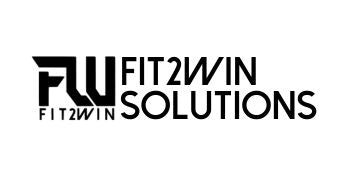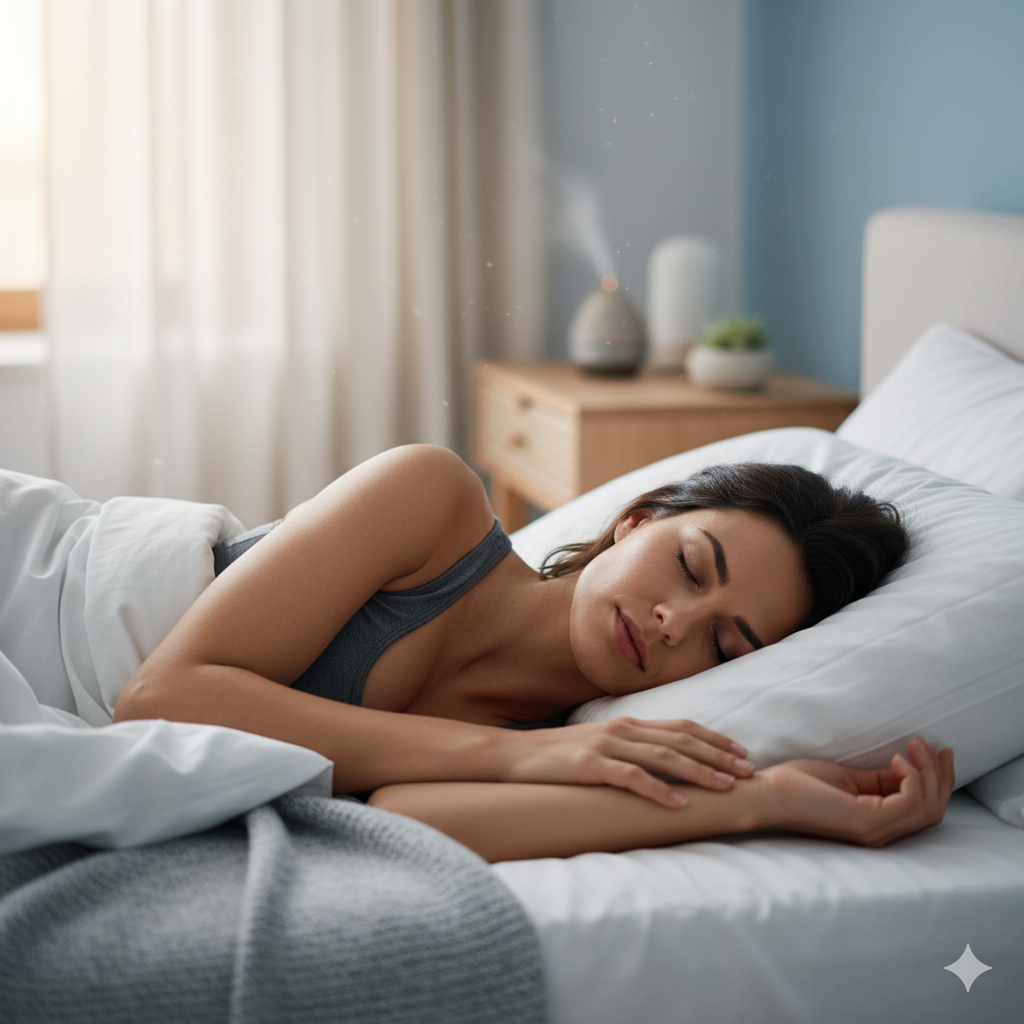
Better Sleep Solutions: The Top Health Products for Enhanced Recovery
Share
Better Sleep Solutions: The Top Health Products for Enhanced Recovery
Sleep isn't just about closing your eyes, it's the cornerstone of your health journey. If counting sheep isn't helping and restless nights are leaving you drained, you're not alone. Many struggle with finding that sweet spot of rejuvenating rest. Fortunately, there are natural sleep aids that can turn your nights around. In this post, we'll uncover top health products designed to enhance your sleep quality and boost recovery. Discover how magnesium, L-theanine, and more can transform your nights into restful retreats. Are you ready to embrace better sleep solutions?
Top Health Products for Better Sleep
In the quest for better sleep, natural health products can play a crucial role. Let's explore some of the most effective options for enhancing your sleep quality and recovery.
Magnesium for Restorative Sleep
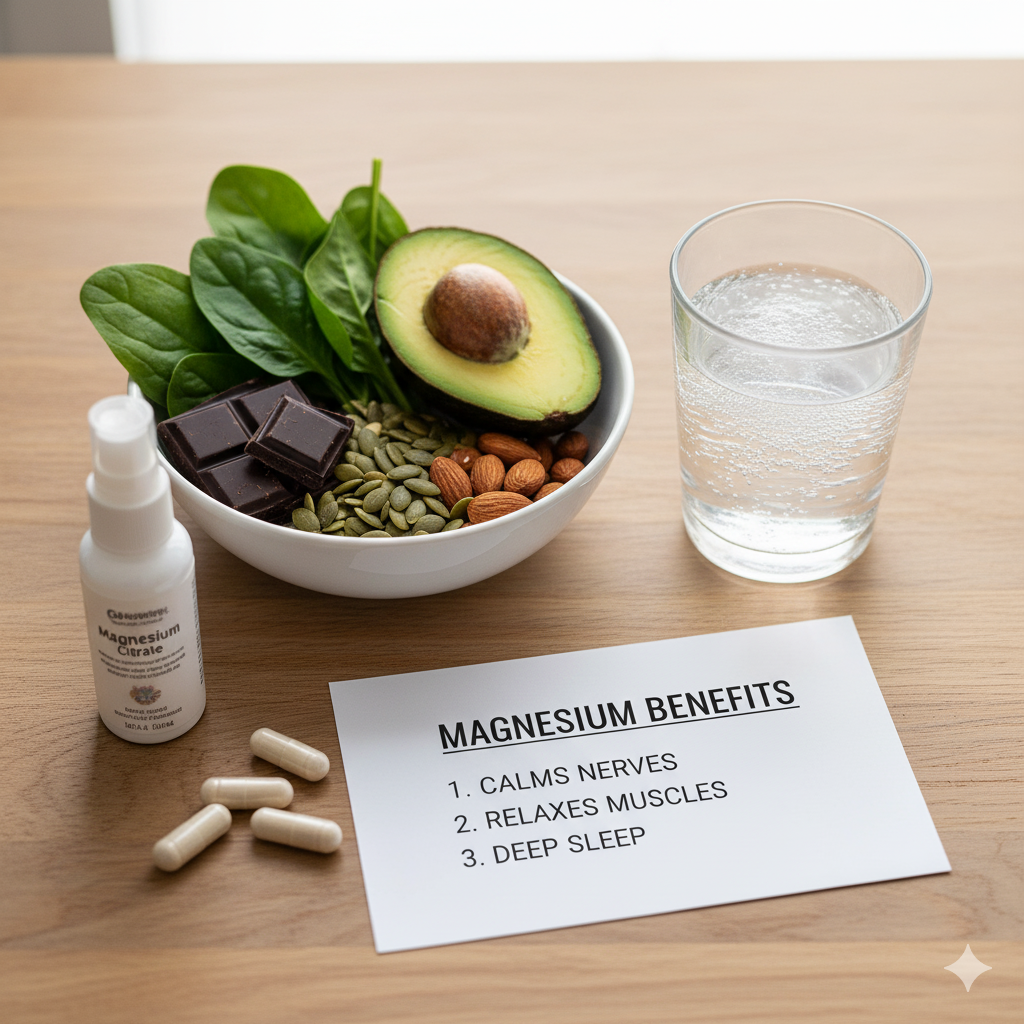
Magnesium is a mineral essential for numerous bodily functions, including sleep regulation. It helps calm the nervous system and relax muscles, promoting deeper, more restorative sleep.
Studies have shown that magnesium can improve sleep quality, especially in older adults. It works by regulating neurotransmitters directly related to sleep.
For optimal results, consider magnesium glycinate or Aquamin magnesium. These forms are gentle on the stomach and absorb well. Take your magnesium supplement about 30-60 minutes before bedtime for best effects.
L-Theanine: Calm Without Sedation
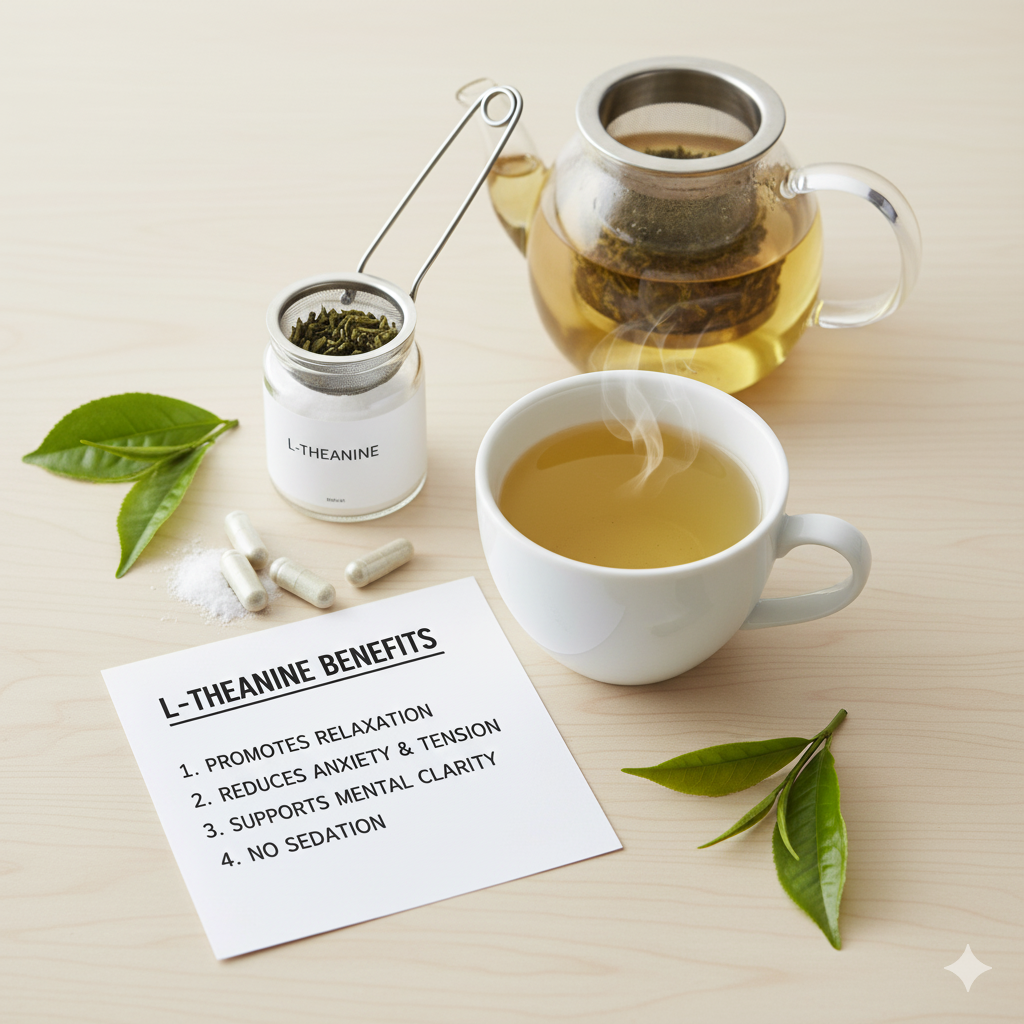
L-Theanine, an amino acid found naturally in tea leaves, offers a unique approach to better sleep. It promotes relaxation without causing drowsiness, making it ideal for those who struggle with racing thoughts at bedtime.
This compound works by increasing alpha brain waves, which are associated with a state of wakeful relaxation. It can help ease the transition into sleep without the grogginess often associated with sleep aids.
Research indicates that L-Theanine may also improve sleep quality by reducing anxiety and promoting mental clarity. It's often combined with other sleep supplements for enhanced effects.
GABA and Glycine for Deep Sleep
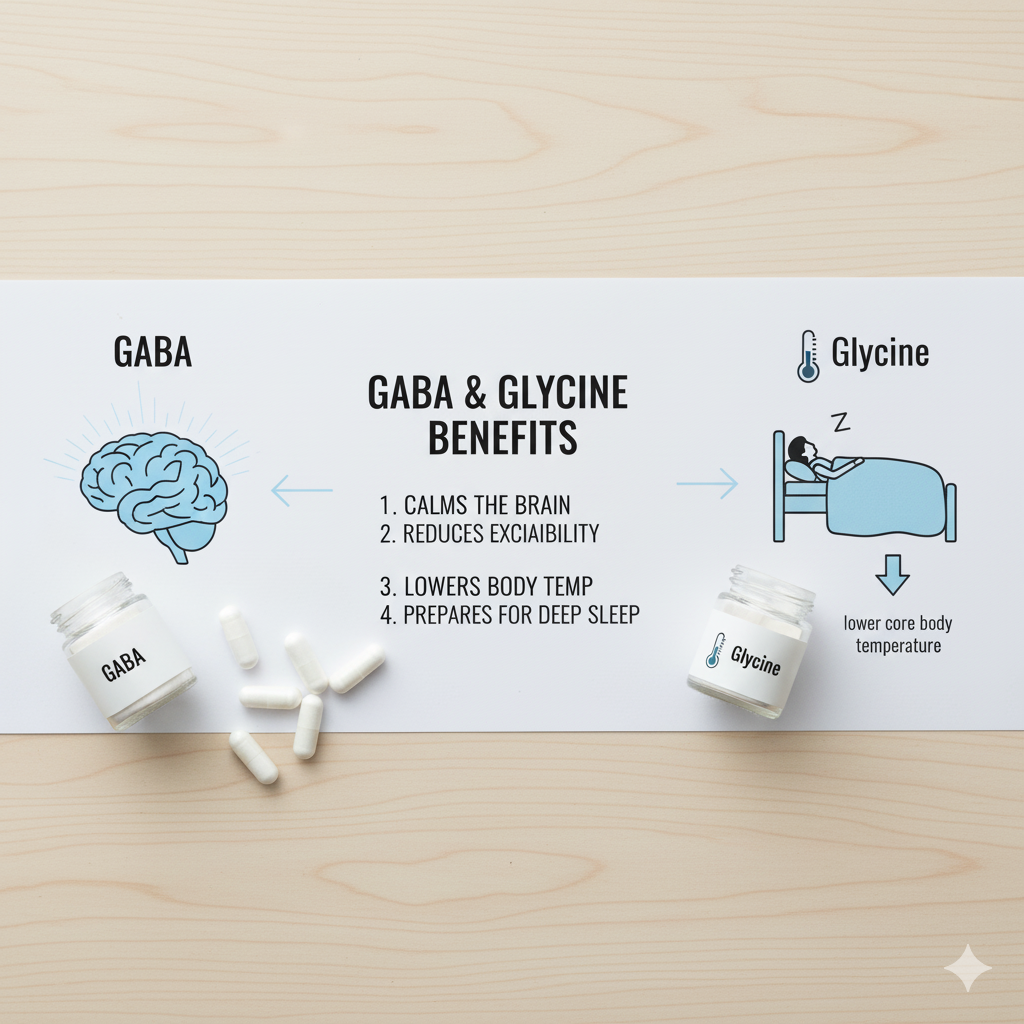
GABA (Gamma-Aminobutyric Acid) and Glycine are neurotransmitters that play vital roles in promoting deep, restful sleep. They work by calming brain activity and preparing the body for sleep.
GABA is the brain's primary inhibitory neurotransmitter, reducing neuronal excitability. It helps quiet the mind and ease the transition into sleep. Glycine, on the other hand, has been shown to lower core body temperature, a key signal for sleep onset.
Both compounds support uninterrupted sleep and can improve next-day alertness. When used together, they create a powerful sleep-promoting combination that addresses multiple aspects of the sleep cycle.
Adaptogens and Melatonin Insights
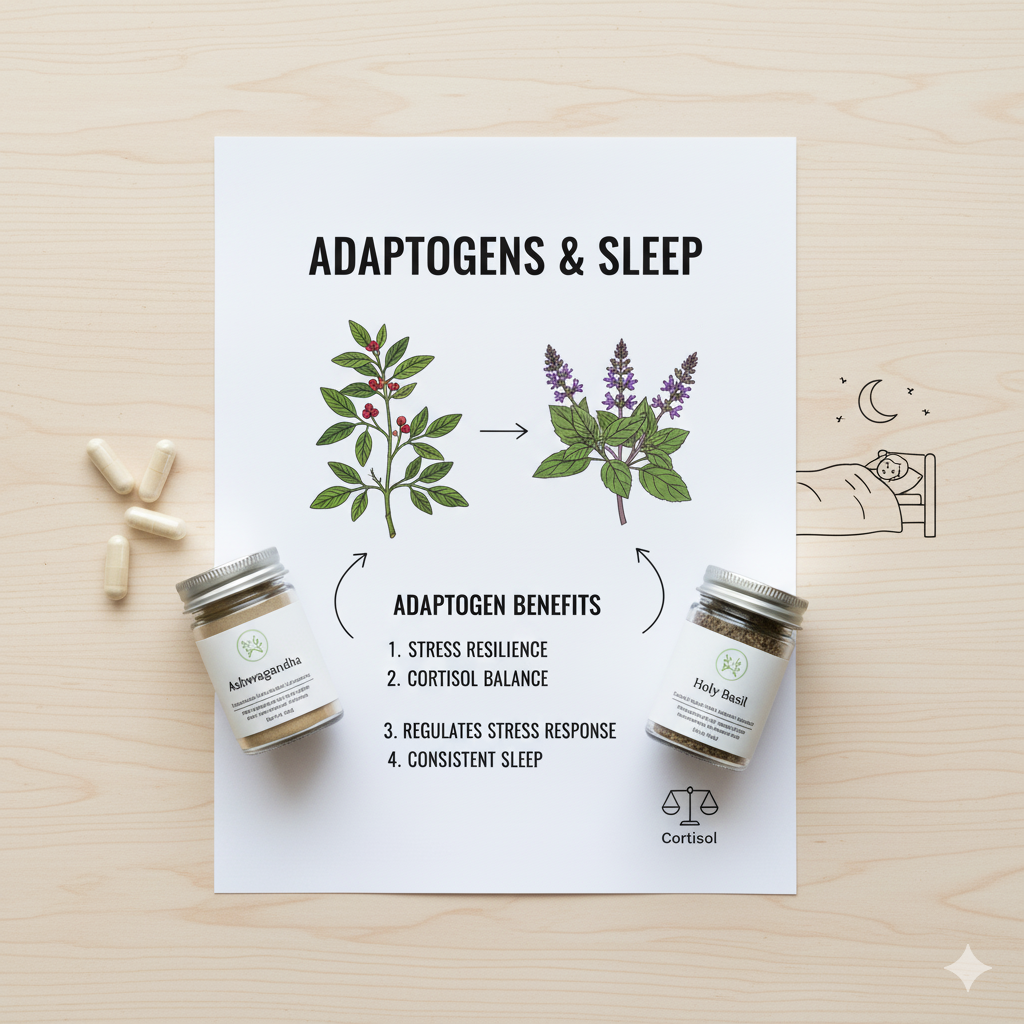
While adaptogens and melatonin work differently, both can contribute to better sleep when used appropriately. Let's examine how these substances can support your sleep routine.
Stress Management with Adaptogens
Adaptogens are natural substances that help the body resist stressors of all kinds. In the context of sleep, they can be particularly beneficial for those whose sleep issues stem from stress or anxiety.
Popular adaptogens for sleep include ashwagandha and holy basil. These herbs work by modulating the body's stress response, helping to balance cortisol levels and promote relaxation.
Regular use of adaptogens can lead to more consistent sleep patterns over time. They're best taken as part of a daily routine, rather than as an immediate sleep aid.
Considerations for Melatonin Use
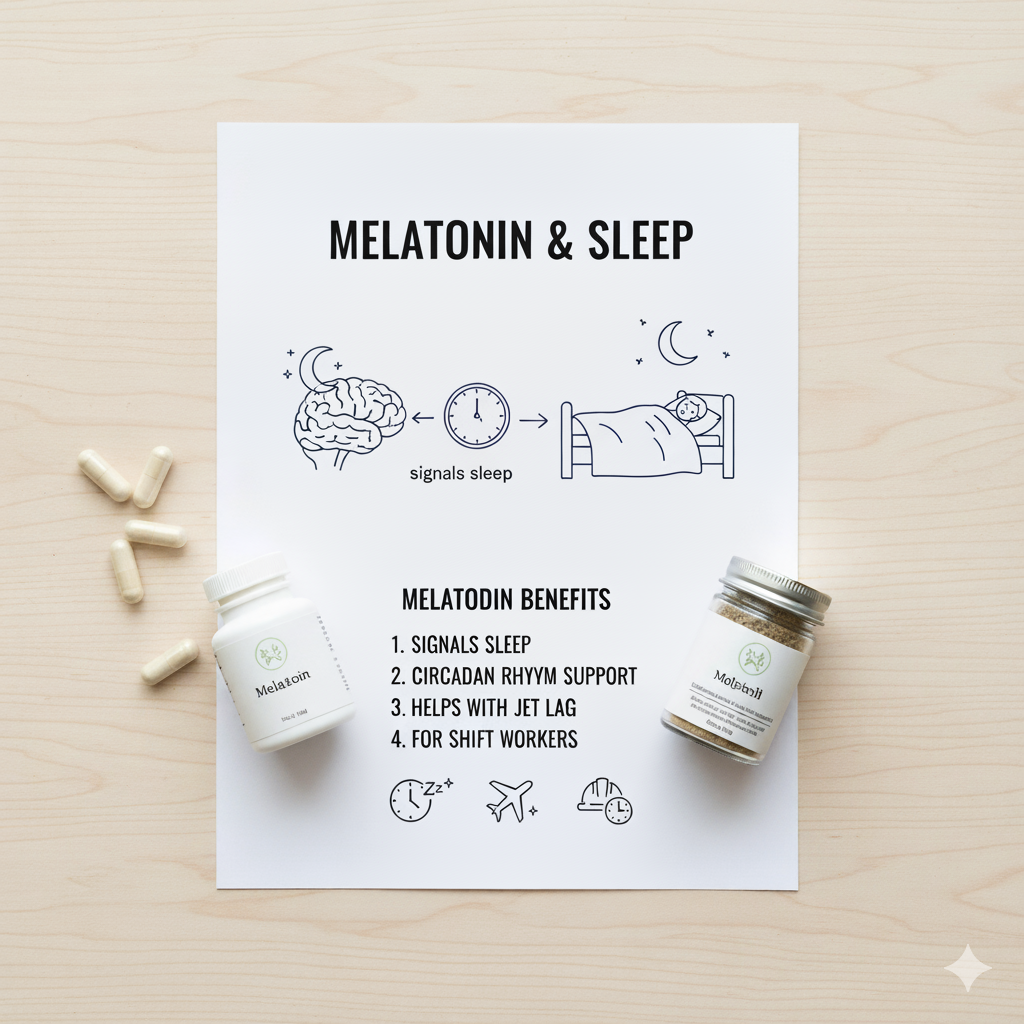
Melatonin is a hormone naturally produced by the body to regulate sleep-wake cycles. As a supplement, it can be effective for certain sleep issues, but it's important to use it judiciously.
Consumer Reports notes that melatonin can be helpful for jet lag or shift work sleep disorder. However, it's not recommended for long-term use without professional guidance.
Start with a low dose (0.5-1 mg) and use it occasionally rather than nightly. Overuse can potentially disrupt your body's natural melatonin production.
Supportive Sleep Habits
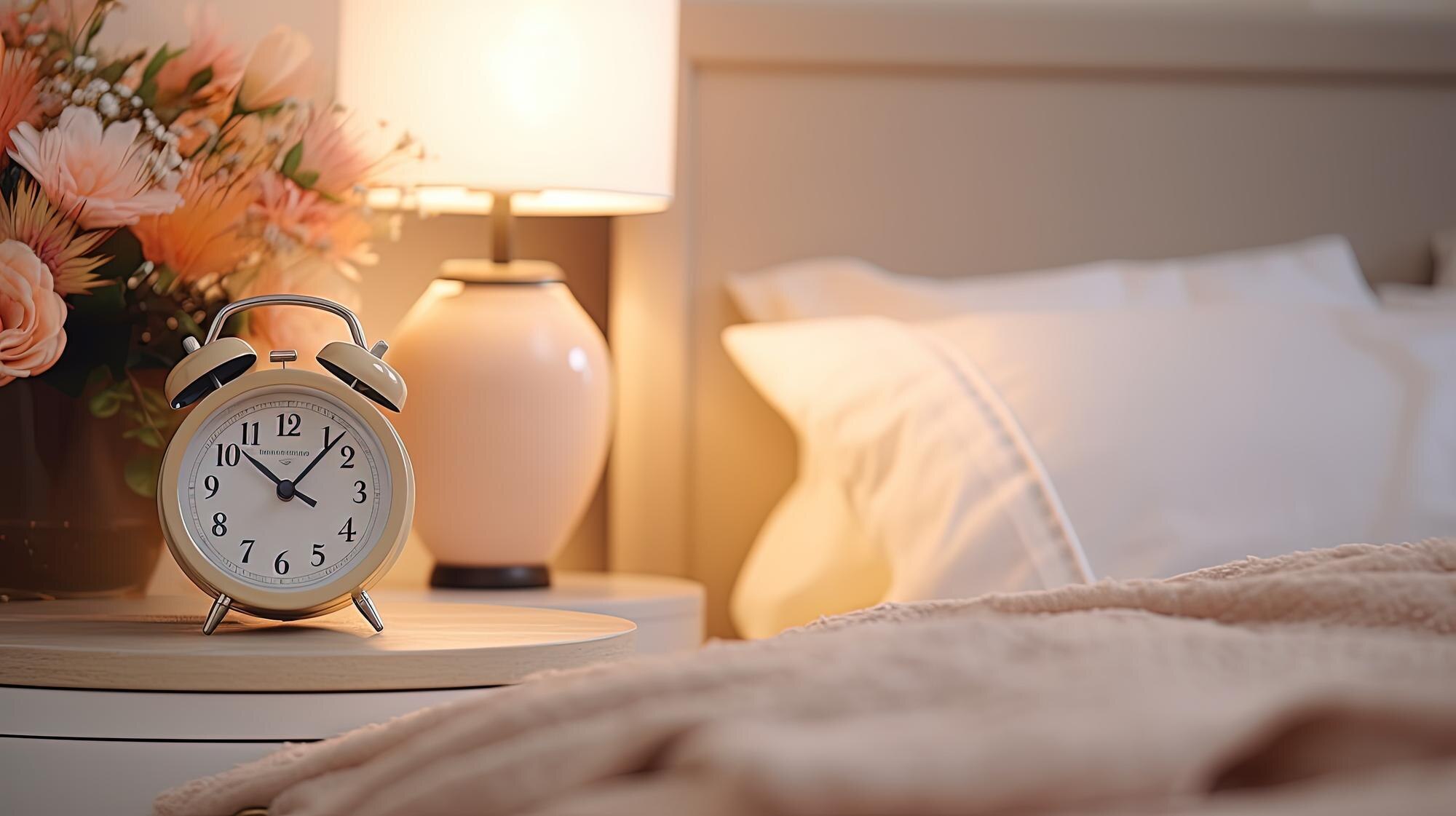
While supplements can be beneficial, they work best when combined with good sleep hygiene. Let's explore some habits that can enhance your sleep quality.
Consistent Sleep Routine Tips
Establishing a consistent sleep routine is crucial for improving sleep quality. Here are some key tips:
-
Set a regular bedtime and wake-up time, even on weekends.
-
Create a relaxing pre-bed ritual, such as reading or gentle stretching.
-
Keep your bedroom cool, dark, and quiet.
-
Avoid screens for at least an hour before bed due to blue light exposure.
Consistency is key. It may take a few weeks for your body to adjust to a new routine, but the benefits are worth the effort.
Enhancing Supplement Effectiveness
To get the most out of your sleep supplements, consider these strategies:
-
Time your supplement intake correctly. Most sleep aids should be taken 30-60 minutes before bedtime.
-
Combine supplements thoughtfully. For example, magnesium and melatonin can work well together.
-
Avoid caffeine after noon and limit alcohol before bed, as these can interfere with supplement effectiveness.
Remember, supplements are meant to support, not replace, good sleep habits. Use them as part of a holistic approach to better sleep.
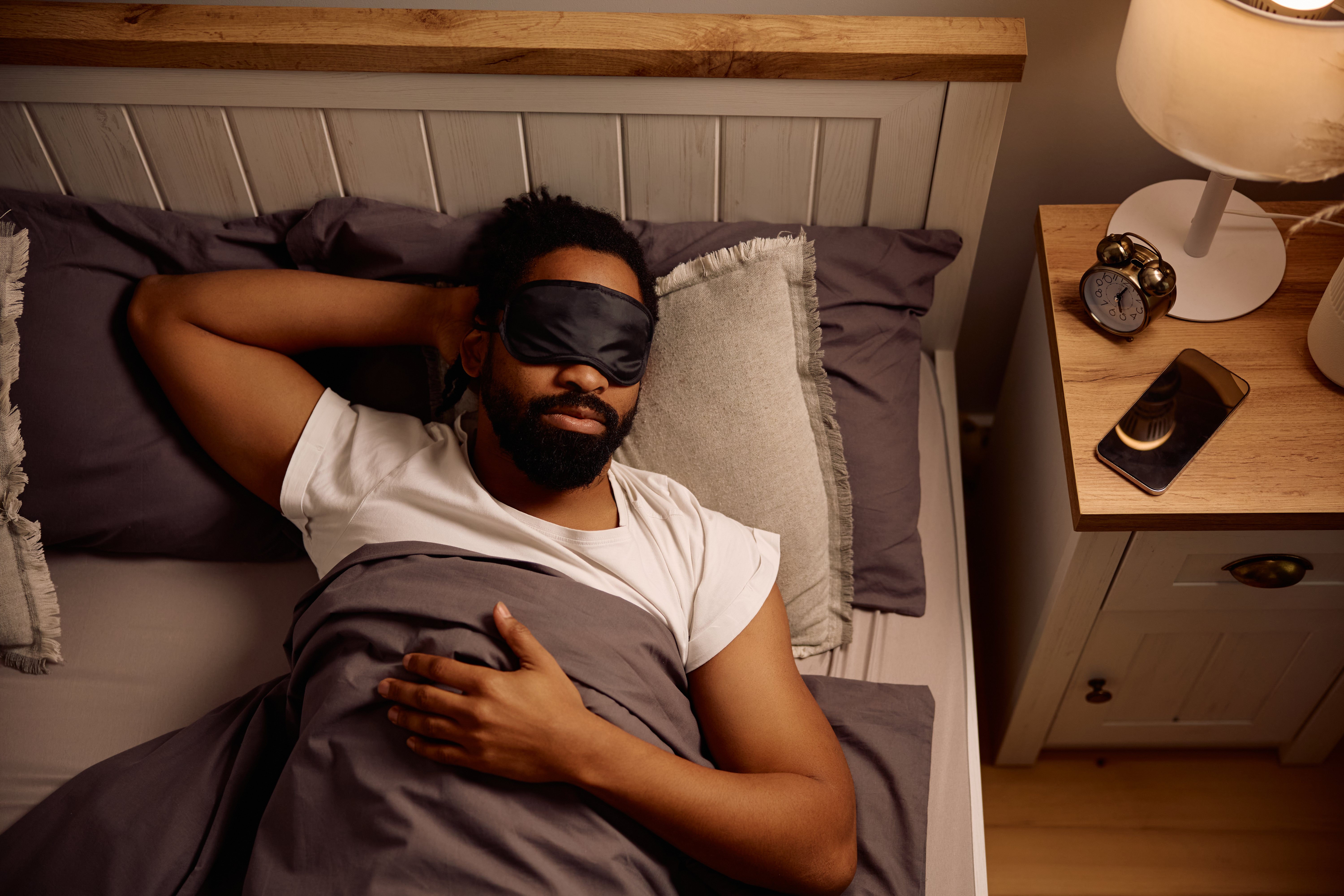
Ready to master your sleep? Check out SLEEPfit to master your sleep today.
